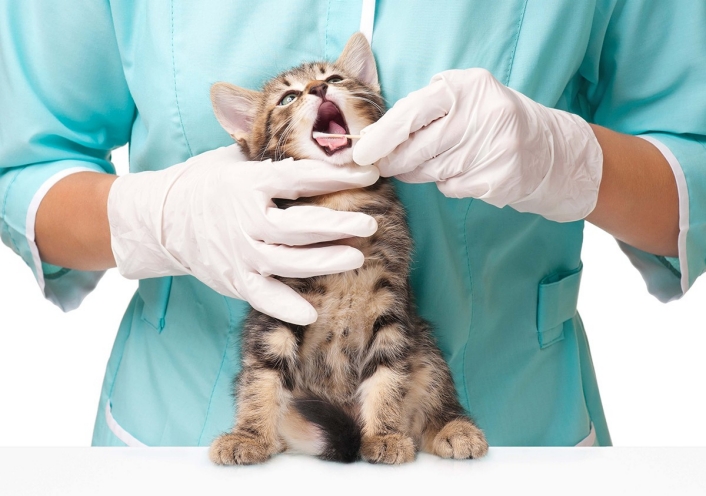The Benefits of Selecting Veterinarian Enterprise for Your Pet's Ongoing Treatment
The Benefits of Selecting Veterinarian Enterprise for Your Pet's Ongoing Treatment
Blog Article
Vaccination Standards From Your Trusted Veterinarian
Vaccination guidelines offered by your trusted vet play an essential function in securing your family pet's health and wellness and wellness. Core injections are essential for all pets, while non-core vaccinations can be customized to ecological exposures and particular way of livings. Understanding the nuances of inoculation schedules, which begin as early as six to 8 weeks, is vital for optimal security. In addition, resolving common misconceptions bordering injections can further boost family pet owners' self-confidence in these safety nets. As we explore these vital aspects, it ends up being significantly clear why normal examinations with your veterinarian are vital for notified decision-making.

Significance of Inoculations
Inoculations play a pivotal function in safeguarding animals versus a range of avoidable diseases. By stimulating the immune system to identify and deal with specific virus, vaccinations substantially reduce the occurrence of transmittable conditions that can affect a family pet's health and durability. Not only do inoculations shield specific pets, however they additionally contribute to herd immunity, thus decreasing the general prevalence of diseases in the animal population.
Timely vaccinations aid to alleviate the spread of diseases such as rabies, parvovirus, and distemper, which can have extreme effects for both humans and pet dogs. Moreover, inoculations are usually a need for boarding centers, brushing solutions, and canine parks, making them important for those who desire to socialize their animals.
Core Vaccines for Pet Dogs
While the specific vaccination requirements of pet dogs can vary based upon individual elements, core vaccines are generally recommended to safeguard against the most major and usual illness (Vet Enterprise). Core vaccines are those considered crucial for all animals, no matter of their lifestyle or geographical place, as they protect against very transmittable and potentially fatal health problems
For dogs, the core vaccinations include those for canine distemper, parvovirus, adenovirus (liver disease), and rabies. Adenovirus can result in liver disease, while rabies is a zoonotic illness that positions a threat to both pets and human beings.
In cats, core injections include feline panleukopenia, feline calicivirus, feline herpesvirus (rhinotracheitis), and rabies. Feline panleukopenia is a very transmittable viral disease that affects the body immune system and intestines. Calicivirus and herpesvirus are major factors to top respiratory infections in pet cats, while rabies stays an essential worry for public wellness.
Seek advice from with your vet to guarantee your pet dogs receive their core vaccinations on time.
Non-Core Vaccines Explained
Non-core vaccinations are tailored to deal with certain risks connected with a pet dog's lifestyle, environment, and exposure to specific conditions. Unlike core injections, which are universally recommended for all family pets, non-core injections are thought about based on private conditions. These vaccinations are especially important for family pets that might come across special pathogens as a result of their geographical place, traveling you could look here habits, or activities.
Instances of non-core vaccinations include those for Bordetella bronchiseptica, which is connected to kennel coughing, and Lyme disease, brought on by ticks. Animals that frequently engage with various other pets, such as those in boarding centers, canine parks, or grooming environments, might take advantage you can look here of Bordetella inoculation. If you live in an area where Lyme condition is widespread, vaccinating against this disease can be a prudent choice for outdoor-loving canines.
Other non-core vaccinations may include those for leptospirosis, canine influenza, and feline leukemia, depending on the certain risk elements existing. It is vital to have a thorough conversation with your veterinarian concerning your family pet's way of living and the prospective demand for these vaccines, ensuring a tailored vaccination approach that finest secures your furry close friend.
Vaccination Arrange Overview

As family pets develop, it is essential to comply with the advised booster vaccinations. my response Pet Health Checkup. For adult pets, core vaccines are usually offered each to 3 years, depending on the details vaccine and local policies. Non-core injections may be recommended based upon way of life variables and regional condition prevalence, necessitating a tailored technique
Routine vet check-ups are vital for upgrading inoculation timetables. Your vet can give assistance on one of the most appropriate booster shots for your family pet, factoring in age, health status, and environmental dangers. By remaining aggressive and educated, pet dog proprietors can guarantee their furry friends obtain timely and effective vaccinations, thus safeguarding their wellness and health throughout their lives.
Typical Misconceptions Concerning Injections
Misconceptions about family pet vaccinations can result in confusion and reluctance amongst family pet owners relating to the immunization procedure. One widespread misconception is that injections are unnecessary for interior pet dogs. While it holds true that indoor pets deal with reduced risks, they are not entirely unsusceptible to diseases, as virus can be presented through numerous ways, including human apparel and various other animals.
Another misunderstanding is that vaccines can trigger the illness they aim to stop. In truth, a lot of vaccinations consist of inactivated or undermined pathogens, which can not trigger illness in healthy animals. Some pet proprietors also believe that their animals need to not be vaccinated if they are already healthy and balanced; nevertheless, vaccinations are an aggressive action that assists prevent the beginning of health problem.
Furthermore, numerous animal owners fear that vaccinations will lead to long-term health problems. The benefits of inoculation-- safeguarding animals from potentially serious diseases-- far outweigh the dangers.
Verdict
In summary, adherence to inoculation standards is critical for ensuring the wellness and longevity of pet dogs. Resolving typical myths bordering vaccinations additionally strengthens the value of informed decision-making in family pet care.
Not just do inoculations protect specific animals, yet they also add to herd resistance, therefore minimizing the general occurrence of diseases in the pet populace.
Misconceptions regarding pet inoculations can lead to confusion and hesitation among animal owners concerning the immunization procedure. While it's real that interior family pets face reduced threats, they are not entirely immune to conditions, as microorganisms can be introduced through different means, including human clothes and various other animals.
Some pet proprietors likewise believe that their pet dogs must not be immunized if they are already healthy; nevertheless, inoculations are a positive step that aids avoid the onset of ailment.
The advantages of vaccination-- securing animals from potentially deadly conditions-- much surpass the risks.
Report this page